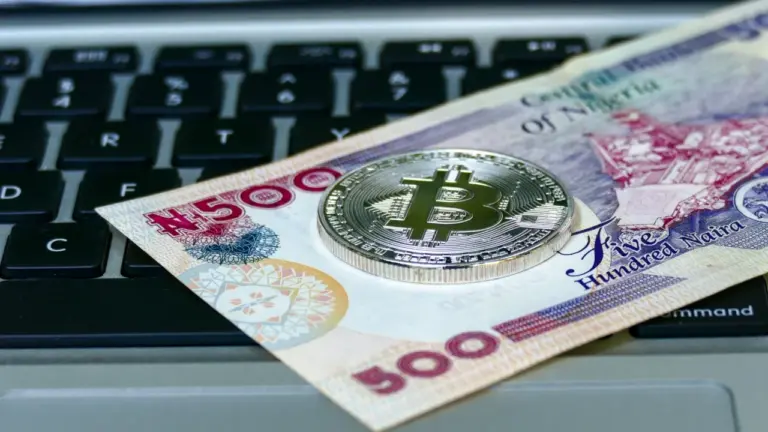In a groundbreaking move, Nigeria has officially classified cryptocurrencies and other virtual assets as securities, marking a transformative moment for the nation’s capital market. This shift, introduced through the Investments and Securities Act (ISA) 2024, is set to enhance transparency, investor protection, and market confidence, making Nigeria a more attractive destination for both local and foreign investments.
A New Era for Digital Assets in Nigeria
President Bola Tinubu’s approval of ISA 2024, which repeals the Investments and Securities Act No. 29 of 2007, brings Virtual Asset Service Providers (VASPs), Digital Asset Operators (DAOPs), and Digital Asset Exchanges under the direct regulation of the Securities and Exchange Commission (SEC).
This means all businesses dealing in cryptocurrencies must register with the SEC and adhere to its guidelines, a move designed to curb fraudulent activities while fostering trust and innovation in blockchain technology.
The Director-General of the SEC, Emomotimi Agama, described the new law as a transformative step for Nigeria’s capital market, emphasizing that it will boost investments in digital assets and align the country’s financial sector with international standards.
Nigeria’s Changing Stance on Cryptocurrency
Nigeria’s relationship with cryptocurrencies has evolved dramatically over the years. Initially, the government responded with strict restrictions due to concerns over the naira’s depreciation, intensified by the surge in demand for digital currencies.
- In 2017, the Central Bank of Nigeria (CBN) took a hard stance by ordering banks to shut down accounts associated with cryptocurrency transactions.
- However, Nigerian traders adapted by shifting to peer-to-peer (P2P) exchanges, with platforms like Binance playing a crucial role in sustaining crypto activities.
- The appointment of Olayemi Cardoso as CBN governor in 2023 marked a turning point, as the government began easing its stance on digital assets, ultimately leading to the regulatory reforms under ISA 2024.
Industry Leaders Applaud the Move
Key stakeholders in Nigeria’s financial sector have praised the enactment of ISA 2024, highlighting its potential to modernize the capital market, protect investors, and promote economic growth.
✔ Oluropo Dada, 13th President of the Chartered Institute of Stockbrokers (CIS): “The new Act underscores the government’s commitment to transparency, efficiency, and stability in our financial markets. It will deepen market integrity and boost investor confidence.”
✔ Sam Onukwue, Chairman of the Association of Securities Dealing Houses of Nigeria (ASHON): “The Act is transformative, strengthening regulatory oversight while creating diversification opportunities beyond traditional equities and fixed income.”
✔ Eguarekhide Longe, Managing Director of NASD: “The Act is a welcome development that enhances investor protection, fraud detection, and risk management in digital markets.”
✔ Akin Akeredolu-Ale, Managing Director of Lagos Commodities and Futures Exchange (LCFE): “This legal framework will provide the foundation for capital market growth, reinforcing Nigeria’s position in the global financial ecosystem.”
Key Highlights of ISA 2024
The new law introduces several progressive measures to enhance Nigeria’s financial market, including:
Classification of Securities Exchanges
- Composite Exchanges: Allow listing and trading of all securities.
- Non-composite Exchanges: Focus on a singular type of security or product.
Stronger SEC Regulatory Powers
The SEC now has enhanced authority, aligning Nigeria’s financial regulations with global best practices under IOSCO’s Enhanced Multilateral Memorandum of Understanding (EMMoU).
Legal Framework for Commodities Exchanges
The Act introduces a structured regulatory framework for Commodities Exchanges and Warehouse Receipts, fostering growth in the agricultural and raw materials sector.
Easing Capital Market Access for Sub-Nationals
The Act removes restrictions on sub-nationals (such as state governments) seeking to raise funds from the capital market, providing greater flexibility for economic development.
Mandatory Use of Legal Entity Identifiers (LEIs)
All capital market participants must now use Legal Entity Identifiers (LEIs), a measure designed to improve transparency in securities transactions.
Crackdown on Ponzi Schemes
The Act explicitly bans Ponzi schemes and other fraudulent investment activities, introducing strict penalties for offenders.
Strengthening the Investments and Securities Tribunal
Reforms have been introduced to enhance the Tribunal’s ability to resolve disputes efficiently, ensuring better enforcement of market regulations.
Nigeria’s Capital Market Poised for Global Recognition
With ISA 2024, Nigeria has taken a bold step toward becoming a leading player in digital asset regulation. The Act’s forward-thinking provisions position the country as a competitive investment hub, reinforcing trust in its financial markets while embracing the future of digital finance.
As Nigeria integrates cryptocurrencies, blockchain, and digital investments into its regulated financial ecosystem, this landmark legal shift signals a new era of economic innovation, growth, and investor confidence.

